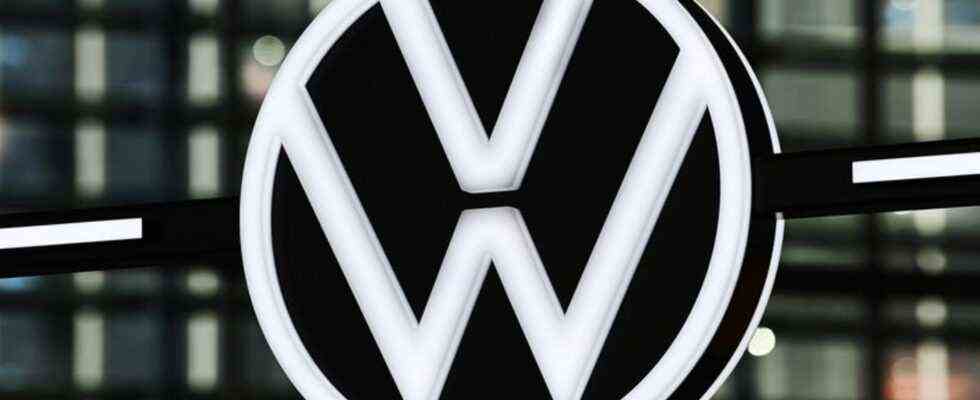VW supervisory board
VW sets course for five years – also board restructuring?
The agenda for what will probably be the last meeting of the VW supervisory board this year is full to the brim. Photo: Swen Pförtner / dpa
© dpa-infocom GmbH
Today the Volkswagen Group wants to present results. The pressure of expectation is high – mainly because of the friction in management.
Lots of models, lots of factories, a lot of money – and probably also some top personal items: The agenda for what will probably be the last meeting of the VW Supervisory Board this year is full to the brim.
After a meeting of its supervisory body, the group wants to provide information on the latest decisions today. This was actually planned for mid-November. But the need for further advice on some questions delayed the process.
In their traditional autumn round, the supervisory boards primarily deal with proposals from management as to where and how expenditure should be distributed over the next five years. This can lead to rivalries between brands and locations in the global VW network. Particular attention is currently paid to how the investments in alternative drives as well as software and networking are broken down. On the other hand, factories with a focus on combustion engine production are wrestling for commitments for e-models and new concepts for the further qualification of their employees.
This year the negotiations were overshadowed by an irritating topic: the conflict-laden relationship between CEO Herbert Diess and the works council and IG Metall, and in some cases the state of Lower Saxony as the second largest owner.
Around a turbulent meeting in September, a new conflict had built up. Works council boss Daniela Cavallo criticized Diess for the irritation that arose after considering tens of thousands of excess positions. In addition, various savings and reduction proposals were calculated behind the back of the workforce representatives.
The CEO replied that he had been misunderstood here – he had only wanted to discuss extreme scenarios. Diess underlined, however, that he sees a need for more efficiency and more courageous changes of direction, especially for the Wolfsburg headquarters, so that VW can keep up with competitors such as Tesla or suppliers from China in the “new” car world. Behind the scenes, it is said to have continued to simmer: A mediation committee of the supervisory board met several times to look for solutions that would keep the reform-minded manager in office and at the same time smooth the turmoil with the employee bench.
Before announcing the expected decisions on top personalities, the company did not want to comment on corresponding media reports in advance. Theoretically, apart from leaving Diess or continuing to work in the previous system, a mixed solution, for example, would be conceivable. According to this, he would formally remain the head of the group, but his function would concentrate on a kind of overall strategic planning. VW core brand boss Ralf Brandstätter was brought into play as an additional member of the group board and as China boss – there was neither a confirmation nor a denial before the meeting.
What is certain is that Volkswagen will continue to give the expansion of electromobility a very high priority in the period ahead. The group announced that it would work with the recycling and material technology company Umicore and the US start-up 24M. In the medium term, compounds of the raw material lithium are also to be promoted in Germany and renewable energy projects are to be promoted.
In Europe, VW plans to initially build six of its own factories for battery cells. In addition to Salzgitter, Skellefteå has already been set in northern Sweden, and a third location in Spain has good prospects. The goal: to break the dependency on external cell suppliers and to set up profitable large-scale production of our own battery systems.
In addition to the Trinity electric model, for which the supervisors are testing their own factory near Wolfsburg, the works council is hoping for at least one additional Stromer for the headquarters itself.
In Hanover, the headquarters of VW’s light commercial vehicles, a new luxury-class SUV will be built as a “Tesla Fighter” from around 2024 in a cooperation between Audi, Porsche and Bentley. Porsche should also be interested in an increase in the Leipzig plant, which could free up further electric capacities in Hanover. It is clear that the ID.Buzz electric bus will start there in 2022.
In the previous planning round at the end of 2020, the group had approved 35 billion euros in investments in e-mobility over the five-year cycle. For software and digital, 27 billion euros were estimated. The internal software division, Cariad, in particular, is intended to create new jobs, while jobs are tending to be cut or converted in traditional areas within the framework of existing programs. The total investments of the VW Group were set at a five-year total of 150 billion euros last time.

